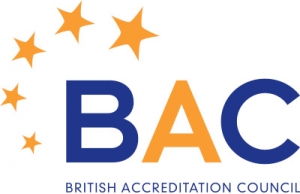The theme of good governance is increasingly significant for independent colleges, particularly those with higher education provision. In terms of educational oversight, both QAA and ISI place considerable emphasis upon governance, but there is perhaps not always complete clarity about what is involved or about the steps that an institution needs to take to ensure that it addresses its governance arrangements in a positive and realistic manner.
I have been interested in governance for some time and currently chair three Boards of Governance. Two of these are in small independent colleges, both with higher education provision, that are also BAC accredited and located in the UK. The third is in an English language school in Dublin. Operating in two different jurisdictions is challenging but immensely interesting and rewarding.
All three of the colleges I have mentioned used to have an extremely informal ‘governance’ set up. A small group of directors would meet occasionally to discuss the way the business was going and consider financial issues. In two of the colleges in particular, this caused frustration among senior staff, who felt they had no involvement in decision making about strategy. The first step in addressing the matter was to set out some thoughts about ways of broadening the arrangements for strategic decision planning and management. In two of the colleges the managing directors positively welcomed this, seeing a more structured governance arrangement as offering them useful support and external advice and expertise. After all, the role of owner/director can often be a lonely one in small institutions. The third college presented a slightly more challenging scenario, but the senior team decided to try the new approach, as their previous experience had been of a series of unsatisfactory, longwinded and rambling meetings which came to few conclusions!
Institutions with higher education provision can align, at least partially, with the Higher Education Governance Code, which, although conceived with universities in mind, offers a useful set of expectations about the way that Boards of Governance should be established and should operate.
So what exactly is a Board of Governance? It is the senior body of the institution and comprises directors, senior managers and independent external members. It is responsible for all strategic decisions and will usually meet on a quarterly basis. Boards of Governance will usually agree a Statement of primary responsibilities which will clearly set out those key areas over which the Board has jurisdiction, which are: mission, strategy, policies and procedures, control systems and KPIs, finances, institutional reputation, legal obligations, equality and diversity, student engagement, human resources, premises and health and safety.
Independent external members are the key to the success of any Board of Governance. The chair is an independent external member and the chair of any sub committees (Finance, Audit, etc) are also independent external members. In fact, independent external members should form the majority on any Board. They ought, of course, to be fully independent of the institution and they will each have expertise in a relevant area, which could include finance, law, funding, quality assurance or assessment. A fully-functioning Board will draw constantly upon the expertise and ideas of its independent members.
Establishing a Board of Governance from scratch presents an initial challenge in small institutions and the arrangement needs time to settle down and grow into an effective body. The culture of deferring major strategic decisions until the next Board meeting takes a while to take root, while ensuring that all members fully prepare for Board meetings by reading papers and considering issues in advance can sometimes be an uphill struggle! Success seems to depend upon a few key factors. A standard meeting agenda, a clear maximum time limit for meetings, effective chairing and appropriate and engaged independent external members, who can contribute positively to discussions.
There is obviously much more to say, but this is supposed to be a general introductory piece about governance, so I`ll leave it there for now. I ran a half day workshop on governance for BAC earlier this year and, although attendance was low, the delegates went away determined to address the issue in their organisations; I`m very happy to chat to anyone else who is considering formalising their governance processes.
I`m totally convinced of the value of structured governance arrangements and have seen embryonic Boards of Governance develop from being rather faltering and slightly unsure of their role into positive and immensely creative decision-making bodies.
Ian C Fleming
